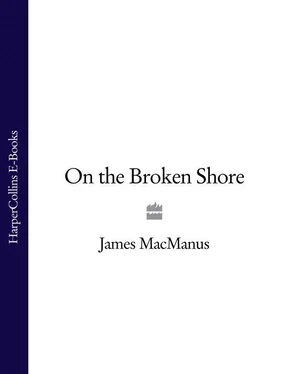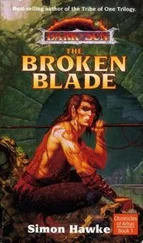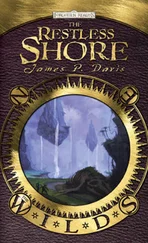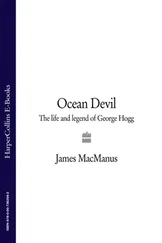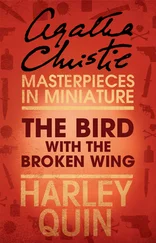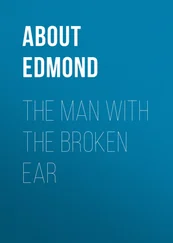On the Broken Shore
James Macmanus
In memory of my parents, Niall and Fiona.
Epigraph Epigraph PROLOGUE MAY ONE TWO THREE FOUR JUNE FIVE SIX JULY SEVEN EIGHT NINE TEN EPILOGUE ACKNOWLEDGEMENTS AUTHOR NOTE Also by James MacManus Copyright About the Publisher
Don’t give your heart
On the broken shore
Where seals and sea dreams
Sing love’s song
For wind and wave
Will take your heart
And drown your dreams
On the broken shore
Anon. translated from the Gaelic by Leo Kemp
Cover Page
Title Page On the Broken Shore James Macmanus
Dedication In memory of my parents, Niall and Fiona.
Epigraph Epigraph Epigraph PROLOGUE MAY ONE TWO THREE FOUR JUNE FIVE SIX JULY SEVEN EIGHT NINE TEN EPILOGUE ACKNOWLEDGEMENTS AUTHOR NOTE Also by James MacManus Copyright About the Publisher Don’t give your heart On the broken shore Where seals and sea dreams Sing love’s song For wind and wave Will take your heart And drown your dreams On the broken shore Anon. translated from the Gaelic by Leo Kemp
PROLOGUE
MAY
ONE
TWO
THREE
FOUR
JUNE
FIVE
SIX
JULY
SEVEN
EIGHT
NINE
TEN
EPILOGUE
ACKNOWLEDGEMENTS
AUTHOR NOTE
Also by James MacManus
Copyright
About the Publisher
The teak tree had been 25 metres in height and weighed four tonnes when it fell to a chainsaw somewhere in the deep south of Brazil. It had been stripped of its branches, hauled from the rainforest and trucked to the port of São Paulo in a shipment of 400 similar sized hardwood trunks.
He knew this because in the madness of his grief he had spent hours researching the three month journey of that single tree from the rainforest to the coastal waters of Cape Cod.
He worked out how old the tree had been, how many years of rain and sunlight had nurtured it, and how and when it had been logged.
Most hardwood from the rainforest was trucked overland to Central and North America. He knew that just as he knew this consignment from the south of the country was sent to São Paulo to take the cheaper sea route to North America. At the port it had been loaded into a container which had been hoisted on to the deck of a cargo vessel.
Ninety miles out in the Atlantic off the New England coast en route to Boston the ballast had shifted in a storm. One, just one, container had broken its deck moorings and gone overboard. The end-gate locking mechanism had snapped and ten prime teak trunks spilt into the sea. Four days later one, just one, had found its way into the path of his Zodiac boat. He was left only with the mystery of the cruel fate that had chosen it to be the instrument of his son’s death.
Cruellest of all it was his fault. Well, that’s what she thought anyway.
He’d taken Julian on his first seal-watching trip to Monomoy Island, a couple of miles off the Cape Cod coast, although the distance from shore kept shifting, and the latest storms had almost turned the eight miles of sand and scrub into a peninsula.
It was September three years ago, a calm day after the holiday crowds had gone. The Cape was winding down. Julian had been on at him to go for months. His mother said the Atlantic was the Atlantic whether you were twenty yards from shore or twenty miles. And it was no place for a boy. But Julian was his father’s son, and alongside all the passions of a 10-year-old – the Boston Red Sox, the endless planning that he and his friends put into catapult attacks on the seagull population of Falmouth Heights Beach, – was a desire to see what Dad really did on his research trips.
‘Lowering microphones into the water, Dad? Why? What for?’
‘Good question,’ said his mother.
It was a calm day, but the swell had strengthened as they passed Gansett Point and headed north-west up the coast past the villages and beaches that carry Native American and pilgrim history in their names: Washburn, Maushop, Popponesset, Mashpee, Cotuit, Wianno.
About a mile off Point Gammon, with Hyannis point in clear view, their boat had struck a semi-submerged object almost invisible in the water. The Zodiac had been moving fast, maybe 15 knots, and had slid over it, but the propeller shaft of the outboard motor had caught the trunk and flipped them over. They had both gone into the water.
Julian’s lifejacket had been on, and he should have been fine, but his head had struck something hard, maybe the outboard motor, maybe the teak trunk, as he hit the water. He never recovered consciousness. He died in the Boston general hospital three days later. Double cranial fracture and brain haemorrhage, said the doctors. He hadn’t stood a chance.
Julian’s school, like probably every other one in the United States, had campaigned on all the great environmental issues of the day: Save the Rainforest, Stop the Whale Culling, Recycle your Household Waste. Posters had been made, letters written to Congressmen and company executives, and plays performed on the school stage. It was what schools do so well. And Julian had helped create the rainforest poster, a 36-square-foot laminated work that had been given pride of place in the entry hall. Monkeys and parrots had been drawn into a rich green canopy, below which the trunk of every tree in the forest was carefully named. Teak, Rosewood and Tropical Oak were the mighty giants of the forest. And below that was a chart counting down the years, with 2049 as year zero. No more trees in the rainforest, unless the world stops the logging. Then the world will pay a terrible price.
And I’ve already paid the price, he thought. Here was death delivered to my son from the endangered rainforest in a sequence of events and with astronomical odds that no computer could ever calculate.
MAY
This was the best time, the time before the tourists arrived in their hundreds of thousands, the time when the winter gales had stopped battering this bent arm of land thrust into the Atlantic, a time when Cape Cod allowed you to look back on the harpooners, sailors and fishermen who shaped its past while urging you to put your dollars down and book a whitewashed shingle house for the summer.
May was always a good month on the Cape: buds breaking on the beech, birch, hemlock and maple trees, the old elms throwing a green tracery of young leaves against a spring sky, beach rose plants showing the first pink blooms; young birds on the wing along every stretch of shore – dunlin, sandpiper, yellow legs, oystercatchers, egrets; seal pups wearing big eyes and grey whiskers flopping on the sandbanks; and prices half what you were going to pay after Memorial Weekend at the end of the month.
Leo Kemp dropped in on the Foodworks café in Falmouth for a breakfast of free-range scrambled eggs and a mug of fair-trade Colombian coffee: Foodworks was run by a bottletanned Californian princess who wore bright green eye shadow and a T-shirt that said Overnight Sensation on the back and You Are What You Eat on the front. Leo paid $12.35 including tip for breakfast. It would be a third more in ten days’ time, he thought.
He had left Margot asleep in bed, lying on her back with Sam’s head nestling in the crook of her outstretched arm. Sam who at 16, half-woman, half-child, still burrowed into their bed at unreasonable hours of the morning. Two careless, sleeping faces framed by a tangle of fair hair.
The old Saab 900 pretty much drove itself the four miles to the Coldharbor Institute for Marine Studies while Leo let his mind drift to his nine o’clock lecture with the new class. They were second-year marine biology postgraduate students. For those who persevered – and the dropout rate was high – their Ph.D. would lead to more postgrad studies, a year or two of fieldwork, a series of papers in academic journals, maybe a book, and then on to the lower rungs of academia, where they would begin their scramble up the ladder towards tenure.
Читать дальше
